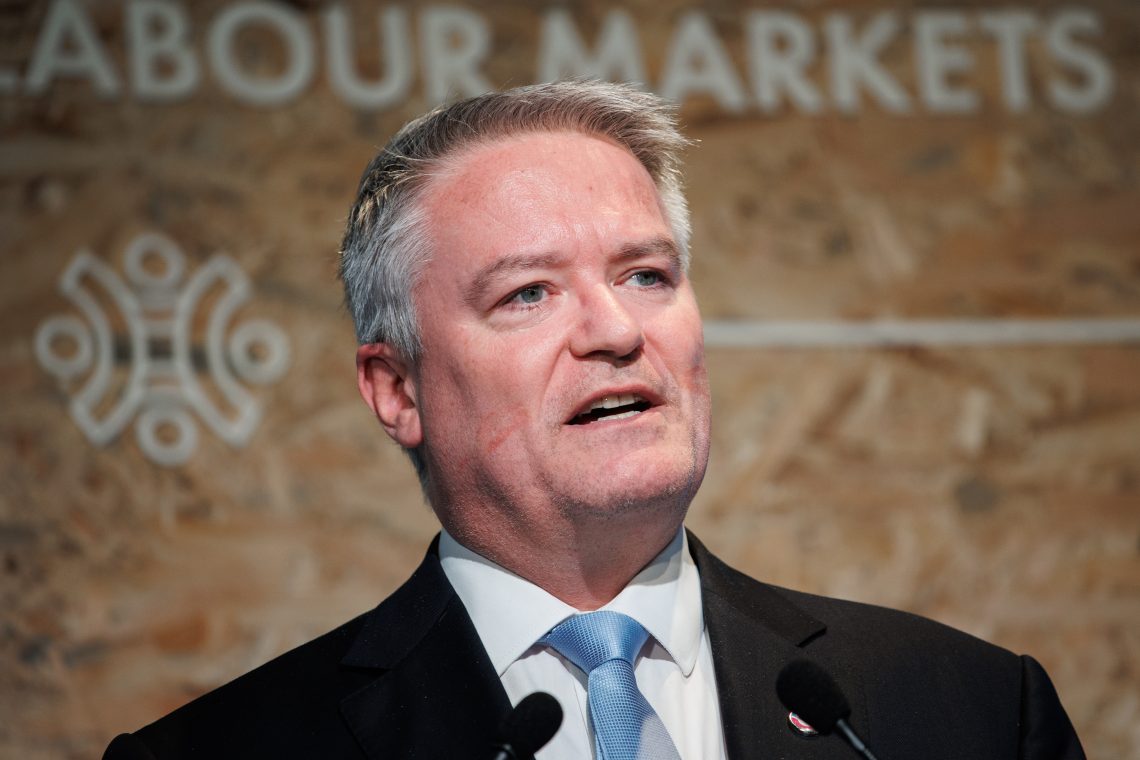Supranational bureaucrats will not stop at setting global corporate tax rates
The landscape of global tax policy is undergoing a significant shift as the Organisation for Economic Co-operation and Development (OECD) spearheads multiple initiatives to increase taxes on international businesses and cross-border investment. The early success of the OECD’s “inclusive framework” used to forge consensus on global business tax increases has emboldened some policymakers to try to recreate that achievement in new policy areas, such as wealth and energy taxes.
The next two years will be critical for the OECD’s pursuit of a new global tax system. It could either solidify its progress in establishing such a system, or face challenges as the program’s cost and complexity become more apparent to domestic constituencies.
Emboldened by some countries becoming early adopters of the OECD-designed global minimum corporate tax, high-tax activists are shifting their sights to new sources of revenue. Ahead of the November 2024 G20 summit in Rio de Janeiro, the finance and economy ministers of Germany, Spain, Brazil and South Africa proposed a global minimum tax on the world’s wealthiest families to pay for transnational redistribution and “social justice” programs. The EU Tax Observatory, a European Union-funded advocacy group for higher taxes, developed the proposal. France’s finance minister agreed with the thrust of the proposal, saying that “by 2027, we should have a global agreement on … taxation of the wealthiest people.”
As bureaucracies grow, they seek to justify their existence by pursuing new initiatives or broadening their policy portfolios.
The OECD’s success in corporate tax harmonization will not only mean higher taxes on global investment, but it could also lead to new projects with even greater reach and larger economic consequences.
A case study in mission creep
Proposals for new forms of international policy coordination by the G20, the United Nations and the OECD reflect well-established patterns by government agencies and international organizations; when given a chance, these bodies will expand the scope of their work.
Initially established to address a specific objective or shared challenge, these entities gradually accumulate additional responsibilities as interest groups lobby for new priorities and internal desire to maintain relevance overrides founding charters. As bureaucracies grow, they seek to justify their existence by pursuing new initiatives or broadening their policy portfolios.
The OECD exemplifies this mission creep. For decades, its work was valuable in facilitating greater trade and access to capital markets among market-oriented democratic member states and non-member developing countries. Through draft treaties and economic studies, the OECD helped coordinate countries’ efforts to mitigate double taxation of cross-border profits, lowering global taxes in the process. This politically neutral work has been unambiguously good for international trade and enhanced general well-being, meeting the OECD’s founding mission.
However, over several decades, the OECD’s tax work has shifted from primarily coordinating tax systems to designing tax increases using complicated new formulas and intrusive reporting requirements. In recent years, international revenue agents have turned the OECD’s global tax program into a tax cartel, designed to inhibit tax-rate competition and ensure every dollar is taxed at their preferred rate. This new agenda threatens to erode the success of the organization’s earlier work – and undermines its founding mission – by increasing taxes on cross-border investment and creating new avenues for double taxation.
With the intellectual groundwork on the global tax cartel now wrapping up, the OECD’s technical expertise and bureaucratic functions will soon turn to new projects.
In 2022, Secretary-General Cormann indicated that worldwide rules on the taxation of individuals are the next step in the OECD’s tax policy work, saying, “Our future tax agenda will need to look well beyond corporate taxes.” Like the finance ministers of Germany, Spain, Brazil, South Africa and France, the secretary-general worries that high-income individuals can escape high tax rates by moving to countries with lower taxation burdens. A new project to cartelize personal income tax systems could be the OECD solution.
The organization’s bureaucrats are far ahead of the G20 finance ministers. For the last decade, the OECD has laid the groundwork for a multi-pronged global tax system to support additional wealth redistribution and centralized state economic planning.
From taxes to climate
The OECD has also expanded its work on climate policy, complementing similar initiatives at the United Nations and the World Bank, among others. For global bureaucrats looking for another big arena, energy and climate policy is their next frontier. Many of the same tools used to force cooperation on global tax increases can be applied to manipulate energy markets and penalize use of fossil fuels.
The problem that the OECD relies primarily on anti‐market tools that require ‘broader whole-of-government strategies’ to achieve their one-size-fits-all climate goals.
The OECD’s Environment Directorate recently launched a new Inclusive Forum on Carbon Mitigation Approaches based explicitly on the “inclusive framework” model used in the Two Pillar global tax process (described in detail in the GIS Dossier “Centralization and global tax schemes”). This work is supported by the OECD Centre on Green Finance and Investment, whose goal is to help the transition to a “green, low-emissions and climate-resilient economy.” Like the early OECD tax projects, the organization claims it will not rank countries or set standards for climate policy. For now, it plans simply to share best practices for carbon mitigation. It made the same claim when it began working on tax competition in the 1990s. Global climate standards will inevitably come next, enforced with extraterritorial taxes or tariffs.
The OECD views the issue of carbon leakage – the presumption that companies can move their emissions-intensive activities from jurisdictions with stringent climate policies to regions with weaker regulations to cut their emissions-reduction costs – similarly to the incentives of tax competition, whereby countries compete for global investment and jobs. In both cases, the organization’s solution is a centralized multilateral tool to ensure that every country meets whatever goals are set by the OECD and a few vocal member countries.
The problem is not a desire for cleaner energy and clean manufacturing; it is that the OECD relies primarily on anti-market tools that require “broader whole-of-government strategies” to achieve their one-size-fits-all climate goals. These goals – for countries to align domestic policy with international sustainable development and climate action targets – most often rely on new or expanded energy taxes.
If the OECD succeeds at creating a new international tax framework, it will encourage efforts to use similar tools for global standard-setting in other policy areas.
The government-centric approach to policymaking is echoed in numerous other OECD projects recommending redistributive, top-down interventions in labor markets, housing markets and private associations. Similarly, the OECD’s work on inequality and mobility recommends higher inheritance and wealth taxes as an essential way to “affect social mobility,” advancing the politics of taxing success rather than focusing on opportunity for those in need.
Multilateral policy coordinated by international organizations can be beneficial when it restrains state power. The early work of the OECD and other bodies, such as the World Trade Organization, limited the impulses of national governments to expand interventions through higher taxes, tariffs or regulations on cross-border trade. But now, mission creep is delivering a new agenda of global governance that advocates increasingly aggressive proposals to expand supranational power, limit market competition and increase barriers to cross-border investment.
Scenarios
More likely: Success fuels continued mission creep
If the OECD succeeds at creating a new international tax framework, it will encourage efforts to use similar tools for global standard-setting in other policy areas. This scenario could entail the development of new frameworks aimed at harmonizing personal income tax systems across countries or implementing new taxes on high-net-worth individuals.
The political momentum on climate policy within the OECD and other international organizations suggests new efforts to impose multilateral carbon mitigation measures, potentially leading to the imposition of extraterritorial taxes or tariffs to enforce global climate standards. Even a partial success of an OECD framework delivering piecemeal domestic reforms and helping raise taxes on some multinational businesses could lead governments to expand this approach to new policy areas.
Less likely: Temporary retrenchment
If the global tax deal stalls, some of the most ambitious new applications of multilateral state intervention may also lose momentum, at least temporarily. Resistance from the United States and China or other logistical challenges that result in the failure to raise taxes or arrest profit shifting could undermine arguments for replicating the “inclusive framework” model. However, a pause in current initiatives does not necessarily mark the end of the push for global tax coordination. Instead, it may merely represent a temporary setback in the broader trajectory toward greater international standardization.
This report was originally published here: https://www.gisreportsonline.com/r/oecd-tax-global/
































